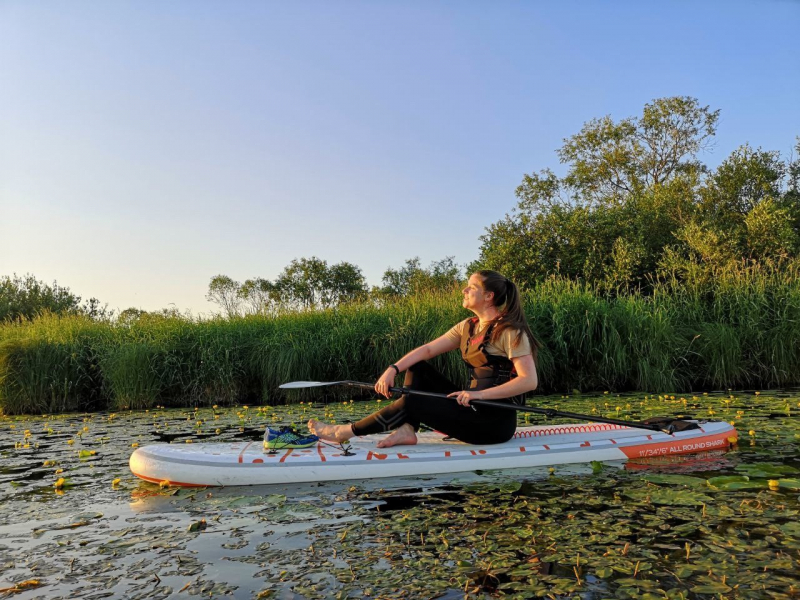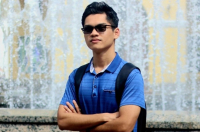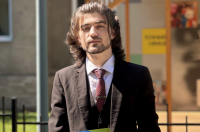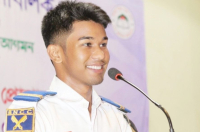Tell us about your work at ITMO University. What are your duties?
I work at the Internationalization Department under the direction of Maria Didkovskaia. Right now I’m working with the Soft Skills block, which is mostly about the administration of our disciplines, supporting the educational process, helping teachers, making lists, and other administrative stuff. Apart from that, our department does many other things. For example, we recently launched an online course together with the GreenTech faculty. For this course, I was helping to prepare the video lectures.
Tell us about your background. Did you have any work experience before this?
Back in 2018, my chemistry teacher was Mikhail Kurushkin, and in our laboratory classes, we were divided into groups based on our level of English, and I was in the top group.
During class, our teacher explained that he is preparing for a conference. Back then, we didn’t know anything about it, but it was the Mendeleev 150 conference in honor of the 150th anniversary of the Mendeleev table. Dr. Kurushkin invited us to join and help in the organization. That was how I got into the organizing committee of the conference. I was working with Mikhail for a year; I used to organize flights, accommodation, breaks, buffets, and documents. It was an interesting experience, and what was unusual is that such a great mass of information, responsibility, and even financials were entrusted to a first-year student!
I think we did a great job as the conference went off without a hitch!
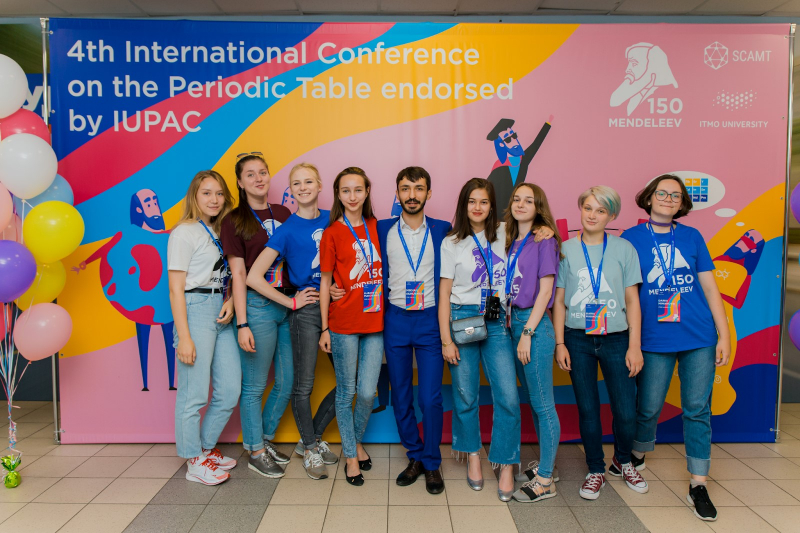
After the Mendeleev 150 conference there were the Sol-Gel and ESP conferences, where I helped out as a volunteer. And then Dr. Kurushkin offered me to continue working with him on his discipline, Internationalization of Research (and it was a course of the Soft Skills block!). During the summer of 2019, I was helping with the course, communicating with teachers, solving organizational issues, etc.
Could you tell us about your early days at the Internationalization Department?
In late summer 2019, I was offered a job at the Internationalization Department at ITMO. That is how I got here, and I’m excited to be a part of such a close-knit collective!
At the beginning of my work here, we started working on our first online course, Life in Science: Guide for Young Researchers.
My job was to help create videos and upload the content to the Eduardo platform. Also, I was working on contracts with international teachers and other matters for the Fellowship & Professorship Program. And this is what I liked the most! I didn’t have to do the same job all the time. In addition, that year, we started another course, Efficient Leadership, Conflict Management, and Team Building, and I had a lot of different tasks related to it. After that, Public Speaking Techniques appeared in our lives, and this year was the start of the soft skills disciplines for third-year Bachelor’s students, which I support now.
What is your favorite part of your job?
I guess it’s the opportunity to fulfill my potential in different fields and to help people! I don’t know. I love that you can always get help or advice with any problems or challenges. It’s so great!
What has been the most challenging moment in your professional path?
I think it was my first year of working. Back then, I was combining my job at ITMO with the position of a chemistry teacher at an online school. I was teaching how to solve chemistry tasks on webinars, communicating with children, and so on. At that time, I found it hard to find a couple of extra hours in a day for both my jobs and full-time study. Yes, those six months were the most difficult.
You combine work with studies. What is your major and is it in any way related to your job?
My major is environmental engineering. At present, it’s not connected to my work. However, I think that in the future, I will become a good specialist in my field. For example, we are working on a project about biogas. We plan to promote this idea in St. Petersburg and study the feasibility of the project and the possibility of the application of these technologies in our country.
What do you plan for the future? Are you going to continue your professional development at ITMO or start working in your field?
As for the nearest future, I have applied for summer school and also have been accepted to the Russia Youth Environmental Program.
In the next three years, I’m sure I will stay in my job, get a Master's degree and a PhD. But I’m pretty sure that I will find a way to excel as a specialist in my field at the same time. At our university, you can find many examples of combining work – it’s very inspiring and motivating!
And of course, improve, develop, and move forward.
As you can see, our students contribute to the life of the university in so many ways! That’s what makes us a family and more than a university.
Interview by Yulia Stepanova
